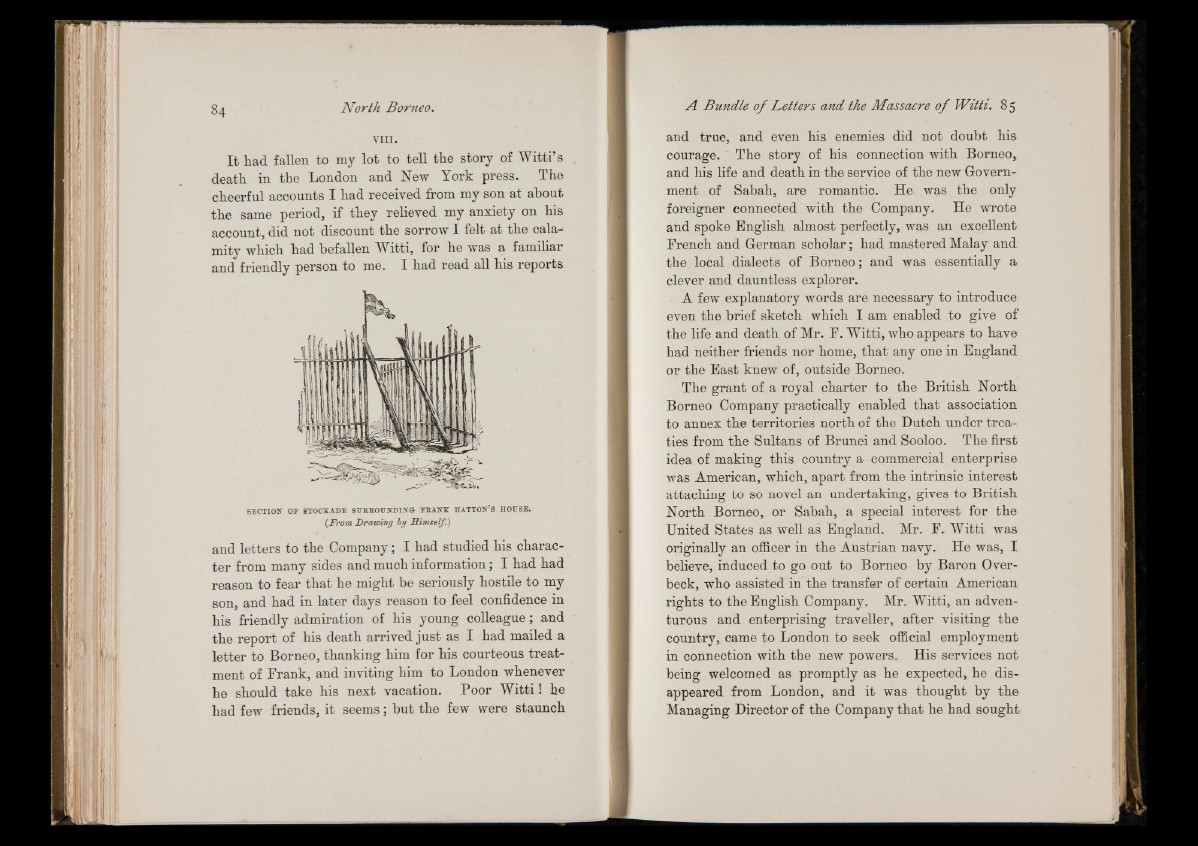
V I I I .
I t had fallen to my lot to tell the story of Witti’s
death in the London and New York press. The
cheerful accounts I had received from my son at about
the same period, if they relieved my anxiety on his
account, did not discount the sorrow I felt at the calamity
which had befallen W itti, for he was a familiar
and friendly person to me. I had read all his reports
SECTION OP STOCKADE SUBBOUNDING PBANK HATTON’S HOUSE.
(From D rawing. by Himself.)
and letters to the Company; I had studied his characte
r from many sides and much information; I had had
reason to fear that he might be seriously hostile to my
son, and had in later days reason to feel confidence in
his friendly admiration of his young colleague; and
the report of his death arrived just as I had mailed a
letter to Borneo, thanking him for his courteous treatment
of Frank, and inviting him to London whenever
he should take his next vacation. Poor W itti! he
had few friends, it seems; but the few were staunch
and true, and even his enemies did not doubt his
courage. ' The story of his connection with Borneo,
and his life and death in the service of the new Government
of Sabah, are romantic. He. was the only
foreigner connected with the Company. He wrote
and spoke English almost perfectly, was an excellent
French and German scholar; had mastered Malay and
the local dialects of Borneo; and was essentially a
clever and dauntless explorer.
A few explanatory words are necessary to introduce
even the brief sketch which I am enabled to give of
the life and death of Mr. F. Witti, who appears to have
had neither friends nor home, that any one in England
or the East knew of, outside Borneo.
The grant of a royal charter to the British North
Borneo Company practically enabled that association
to annex the territories north of the Dutch under treaties
from the Sultans of Brunei and Sooloo. The first
idea of making this country a commercial enterprise
was American, which, apart from the intrinsic interest
attaching to so novel an undertaking, gives to British
North Borneo, or Sabah, a special interest for the
United States as well as England. Mr. F. Witti was
originally an officer in the Austrian navy. He was, I
believe, induced to go out to Borneo by Baron Overbeck,
who assisted in the transfer of certain American
rights to the English Company. Mr. Witti, an adventurous
and enterprising traveller, after visiting the
country, came to London to seek official employment
in connection with the new powers. His services not
being welcomed as promptly as he expected, he disappeared
from London, and it was thought by the
Managing Director of the Company that he had sought